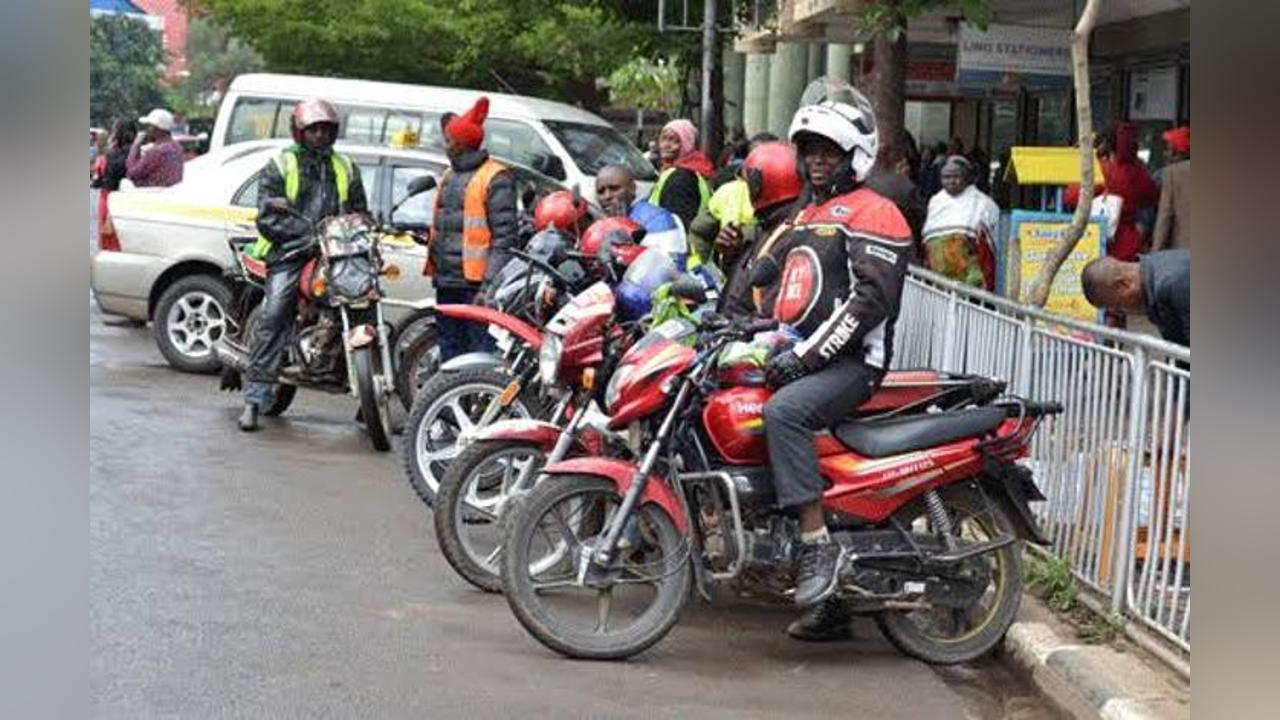Africa-Press – Uganda. The United Boda-Boda Cooperative Union has introduced the National Boda-Boda Stage Development Model to promote financial independence and professionalize the industry.
This initiative, launched two weeks ago, features programs designed to streamline operations and empower riders through a Savings and Credit Cooperative Organization (SACCO).
As part of the initiative, the SACCO will support the establishment of a dedicated bank for boda-boda riders. The cooperative has also unveiled the Union App, Uganda’s first nationwide ride-hailing service exclusively for boda-boda operators.
Additionally, it aims to nurture riders’ talents, allowing them to supplement their incomes through creative pursuits.
The launch event, held in Kansanga, attracted leading industry figures. Franka Mawejje, chairman of the Uganda Boda-Boda Association, highlighted the significance of these innovations in professionalizing the sector.
“We have developed the Union App and other activities such as singing competitions to promote ourselves as boda-boda drivers and showcase our talents,” Mawejje stated.
The initiative, spearheaded by the United Boda-Boda Riders Cooperative Union in collaboration with Jambo Riders Uganda Ltd and Spirit of Africa, seeks to transform the industry beyond transportation into a driver of economic and social change.
With structured governance, digital ride-hailing services, and accessible financing, the initiative marks a shift in Uganda’s boda-boda sector.
The union’s General Manager, Baker Kasawuli, emphasised the need for a structured approach.
“For years, boda-boda riders have operated under chaotic conditions, facing high loan interest rates, lack of regulation, and safety concerns,” Kasawuli noted.
“This cooperative is designed to change that by providing a clear leadership structure, financial support, and digital solutions to empower riders,” he added.
For decades, the boda-boda industry has grappled with disorganisation, exploitative lending schemes, and a lack of social security for riders.
The new cooperative seeks to address these issues through a governance model that includes regional and district committees.
This structure will enable riders to participate in decision-making, ensuring their interests are represented while fostering accountability.
A key component of the initiative is the National Boda-Boda Stage Development Model (NBSDM), which aims to improve operational efficiency by formalising boda-boda stages across Uganda.
The model, themed “Empowering Boda-Boda Riders for Growth,” is backed by the Ministry of Local Government.
The boda-boda sector is Uganda’s second-largest employer, with approximately 1.2 million riders and 150,000 registered stages nationwide. In Kampala alone, there are 350,000 boda-boda riders operating from 1,021 registered stages.
Despite its significance in urban mobility, the industry faces challenges such as poor management, high accident rates, limited financial access, and crime-related concerns.
According to the 2023 Police Report, boda-bodas were involved in 37% (13,856) of the 37,449 recorded road accidents. Additionally, over 15% of the 228,000 reported crimes were linked to boda-boda operations, placing a financial strain on the government and health sector.
Under the new model, registered boda-boda stages will be restructured into recognised units, allowing riders to access financial services through the SACCO, which is expected to evolve into a bank. This transformation aims to enhance livelihoods while promoting road safety, environmental sustainability, and professionalism.
Riders will also benefit from digital tracking for security, training in road safety, customer service, and financial literacy. Additionally, partnerships with government agencies and private institutions will help streamline operations.
Unlike existing digital ride-hailing services that primarily operate in Kampala, the United Boda-Boda Riders Cooperative Union is structured for nationwide implementation, ensuring that riders in rural and semi-urban areas benefit from tailored organisational structures.
The union has scheduled the launch of the Boda-Boda Union App for February 17. This platform will allow riders across Uganda to access digital services that enhance efficiency, safety, and convenience.
Financial empowerment is a central focus of the initiative. Many boda-boda riders struggle with exploitative loan agreements, often resulting in the loss of their motorcycles. Through the cooperative, riders will have access to microloans and affordable asset financing, enabling them to own motorcycles under fair conditions.
Savings schemes will also be introduced to help riders build financial stability and prepare for life beyond the boda-boda business.
To ensure effective representation, the cooperative has introduced a hierarchical leadership model with district and regional committees. Union Legal Advisor Fred Muwema explained that this governance system aims to enhance accountability and service delivery.
“The days of boda-boda riders being disorganised and exploited are over. With a structured leadership model, riders will now have access to financial aid, professional training, and proper regulations that enhance their work environment,” Muwema noted.
Road safety has long been a major concern in Uganda’s boda-boda industry due to high accident rates and security risks. The cooperative aims to address this by implementing mandatory training in defensive riding, first aid, and customer service.
Additionally, digital tracking systems will be introduced to improve security, and the cooperative will collaborate with local authorities to regulate boda-boda operations.
“This is more than just a union—it is a movement towards safer, more reliable transport in Uganda,” Muwema added.
Many boda-boda riders have expressed optimism about the initiative.
Yusuf Mugerwa, a boda-boda rider from Mbarara, shared his enthusiasm:
“This is a game-changer. For the first time, we have a system that supports us, not just in Kampala but across the country.”
James Okot, a rider from Gulu, highlighted the importance of financial empowerment.
“This is a lifeline for us. Many of us work hard but struggle to own our motorcycles due to high-interest loans. With the cooperative’s financial support, we can finally gain independence,” Okot stated.
The United Boda-Boda Riders Cooperative Union is set to reshape Uganda’s transport industry, bringing organisation, economic empowerment, and financial stability to thousands of riders. As the initiative progresses, it presents a model for how cooperative action can transform an entire sector.
“With unity, structure, and smart governance, we can uplift the boda-boda industry and make it more professional and sustainable,” Kasawuli said.
With this initiative, Uganda’s boda-boda industry is moving toward greater professionalism, safety, and economic prosperity, ensuring that riders not only survive but thrive in their trade.
Source: Nilepost News
For More News And Analysis About Uganda Follow Africa-Press






